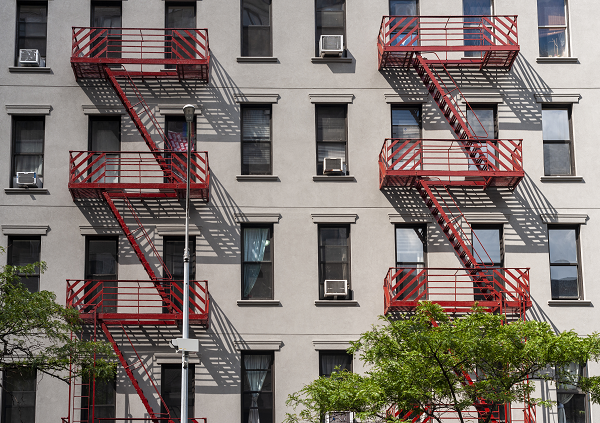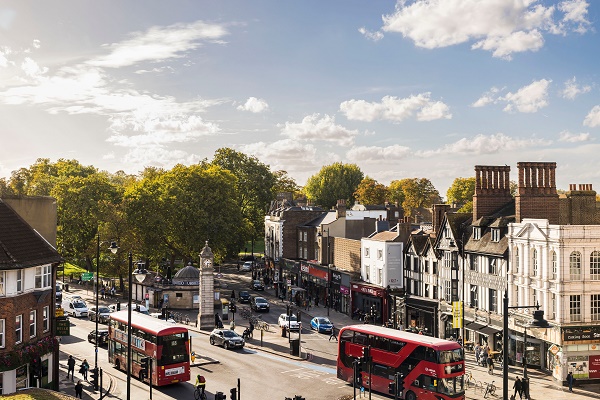Research by the Gradual Homeownership provider, Wayhome, has revealed which key workers currently face the toughest challenge when it comes to house price affordability, based on their house price to income ratio, as well as which have seen the largest reduction in affordability since the start of the pandemic.
Wayhome analysed current housing affordability across 20 key worker categories based on the current housing affordability ratio – current average house price divided by the average annual gross salary.
Across the UK, the current average house price of £294,910, coupled with an average annual gross salary of £33,402, places the average housing affordability ratio at 8.8.
Those hit by the lowest level of housing affordability in the current market are key workers within the education and childcare sector. With an average earnings of £14,085, they would need 20.9 times their income to afford the current average UK house price.
Refuse collectors (13.1), those working in food production (12.7), national and local government employees (12.4), clergy (11.5), bus drivers (11.3) and postal workers (10.6) are also some of the worst affected by current housing affordability with a double-digit affordability ratio meaning they would need over 10 times their income to cover the average cost of a property.
Other key workers with an affordability ratio coming in above the UK average of 8.8 include midwives (9.8), prison officers (9.5) and nurses (9.4), while journalists (8.7) and firefighters (8.7), teachers (8.5) and social workers (8.3) are also hovering dangerously close to the national benchmark.
Those facing the lowest financial hurdle when it comes to property price affordability include doctors (4.4), lawyers (5), and train drivers (5).
When looking at this gauge of housing market affordability today versus pre-pandemic (2019), it’s childcare staff who have also seen the biggest squeeze, with a 3.1 increase in their housing affordability ratio.
Other key workers to have seen a notable increase in this measure of purchasing power include national and local government employees (+2.7), journalists (+2.6) and bus drivers (+2.2).
Wayhome is an innovative hybrid part-buy part-rent platform that is pioneering the concept of gradual homeownership by allowing people to purchase a home at 10 times their income with just a five per cent deposit with no mortgage or borrowing required.
To date, 34% of all buyers to have purchased via Wayhome fall into the category of a key worker, with Jennie being one of them.
Case Study
Jennie, a part-time teaching assistant and mother of two young daughters, turned to Wayhome after a divorce forced her to return to the rental sector. Despite having £15,000 from the sale of her previous home, Jennie couldn’t secure a mortgage on a new property due to the fact that she was on a single income.
Determined to provide a home for her children that they could call their own, Jennie finally found Wayhome in September of last year. Wayhome worked with Jennie to establish what she could afford via their affordability review, taking into account the benefits she claimed to support her family.
With a deposit of £15,000 and an annual household income of £30,800, Jennie was able to purchase a property of her own for £247,500 at eight times her income, immediately owning 5.71% of the home herself while paying £895 in rent.
Wayhome homebuyer, Jennie Crick, commented, “Suddenly becoming a single parent was tough and it was made all the tougher by the fact that I simply couldn’t secure a mortgage for myself. As I was already renting, the council wouldn’t consider me for a council house unless I effectively made myself homeless, which is something I simply wasn’t prepared to do to my children.
I was stuck in the private rental rut and had given up hope until I discovered Wayhome. At first I thought it was too good to be true, but they helped me every step of the way, from the initial credit check, right through to the completion of my purchase.
They helped me realise my dream of independent homeownership when no one else would and helped me rediscover my self worth during what was a very difficult time. Thanks to them I’ve never looked back and now have a home that my daughters and I can be proud of.”
Co-founder and CEO of Wayhome, Nigel Purves, commented,
“While we often think of nurses, paramedics, and police on the frontline when it comes to key workers, it’s fair to say that the pandemic has shone a light on those diligently providing other key services that we may have previously taken for granted.
Despite their valiant efforts in providing these essential services, many continue to suffer from below par wage growth which is seriously hampering their ability to climb the property ladder, particularly when you consider the huge rates of house price growth that have swept the market during the pandemic.
In fact, the majority of those working within these key sectors rank below the national average when looking at the current housing affordability ratio, and at Wayhome, key workers account for over a third of all buyers we see come through the doors.”






Leave a Comment